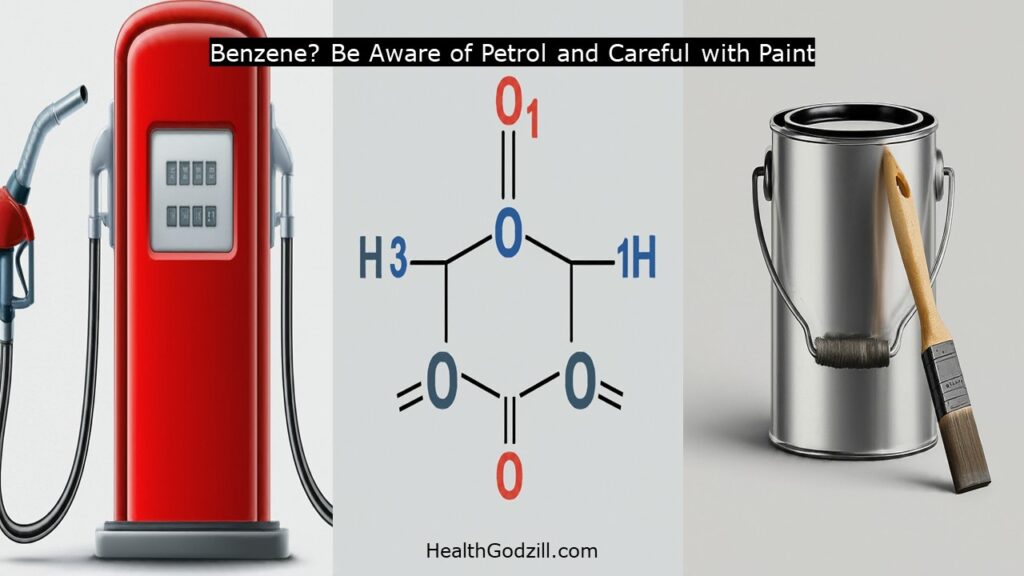
Benzene is a chemical found in gasoline and many household products, but what are the health risks? Benzene and its homologs (chemical cousins), such as toluene, xylene, and ethylbenzene, are commonly used in industrial settings. While they play a role in various products, exposure to these chemicals can be harmful.
What are Benzene and Its Homologs? Benzene and its homologs are typically colorless and have a sweet, gasoline-like odor. Industries often use these chemicals.
Key Characteristics:
- Evaporation: Benzene and similar chemicals evaporate quickly, releasing vapors that are heavier than air and can travel long distances.
- Environmental Persistence: They can remain in the environment for a long time.
- Reactivity: They can react with other chemicals, posing fire or explosion risks.
- Material Damage: They can damage plastics and rubber.
Occupational Exposure to Benzene and Its Relatives
High-Risk Jobs and Industries:
- Chemical Industry: Involves production and handling of chemicals.
- Gasoline Production: Workers involved in refining and distributing gasoline.
- Manufacturing: Rubber, detergents, and explosives sectors use benzene.
- Other Jobs: Shoemakers, steelworkers, lab technicians, firefighters, gas station attendants.
Health Effects and Safety Information
Short-Term Exposure:
- Benzene exposure can cause headaches, dizziness, and irritation of the eyes and skin.
- Toluene, xylene, and ethylbenzene can cause similar effects.
Long-Term Exposure:
- Benzene is a known carcinogen and can lead to severe blood disorders like leukemia.
- Chronic exposure to these chemicals can affect the nervous system, causing problems with memory, thinking, and hearing.
Specific Chemicals:
- Toluene:
- Effects: Chronic exposure affects the nervous system, causing headaches, dizziness, and impaired coordination.
- Inhalation Risks: Abuse can severely impact the central nervous system, heart, kidneys, and liver.
- Xylene:
- Short-term Exposure: Irritates skin, eyes, and respiratory system.
- Long-term Exposure: This can lead to neurological issues like headaches, confusion, and memory problems.
- Ethylbenzene:
- Short-term Effects: Can cause eye and throat irritation, dizziness, and vertigo. May contribute to hearing loss.
Safety Measures
Workplace Safety:
- Protective Gear: Use masks, gloves, and other protective equipment.
- Ventilation: Ensure proper ventilation in work areas.
- Monitoring: Regular medical monitoring helps detect early signs of exposure in workers.
General Public:
- Safer Alternatives: Use products labeled “low-VOC” or benzene-free.
- Minimize Exposure: Avoid breathing fumes at gas stations, improve ventilation when using hazardous products, and store chemicals properly.
- Education: Learn about benzene risks and how to minimize them.
Diseases Caused by Benzene and Its Homologs
Bone Marrow Damage:
- Acute Myeloid Leukemia (AML): Increased risk due to long-term exposure to benzene.
- Aplastic Anemia: Reduces the production of blood cells.
Brain Damage: Long-term exposure to chemicals can cause memory, thinking, and mood problems.
Hearing Loss: Sensorineural Hearing Loss: Damage to the inner ear from chemicals like benzene, even without noise exposure.
Cancer Risk from Benzene
Carcinogenicity:
- Benzene: Classified as carcinogenic to humans, increasing the risk of blood cancers like AML.
- Ethylbenzene: Possibly carcinogenic to humans based on animal studies.
- Toluene and Xylenes: Not classifiable regarding carcinogenicity due to limited evidence.
Key Actions for Prevention
Everyday Products:
- Choose Safer Products: Look for low-VOC or benzene-free options.
- Improve Ventilation: Ensure good airflow when using hazardous products.
- Proper Storage: Store benzene-containing products safely.
Workplace Safety:
- Regulations: Follow strict safety measures to minimize exposure.
- Protective Practices: Use appropriate protective gear and ensure proper ventilation.
Following these guidelines and staying informed can significantly reduce the risk of harm from benzene and similar chemicals.
Hi X22keync, Thanks for your email and positive vibes! I appreciate you reaching out to HealthGodzilla.com. Is there anything specific…
Hey people!!!!! Good mood and good luck to everyone!!!!!
Hey, X22keync! 👋 Thanks for stopping by! 😊 We’re happy to have you and wish you good luck! 🍀 Feel…
Hey people!!!!! Good mood and good luck to everyone!!!!!

Leave a Reply